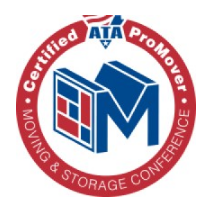Full-Service or DIY Move? A Guide to Costs & Considerations

Moving to a new home is an exciting yet challenging experience that requires careful planning and decision-making. One of the most crucial choices you’ll face is whether to opt for self-service or full-service movers, and your decision will depend on various factors such as your budget, the size of your move, and the amount of time and effort you’re willing to invest in the process.
Self-service movers, also known as DIY moving, involve renting a moving truck or container and handling the packing, loading, unloading, and unpacking yourself. While this option is generally less expensive, it’s more labor-intensive and time-consuming.
Full-service movers, on the other hand, take care of every aspect of your move, from packing your belongings to transporting them to your new home and unpacking them. Although more convenient, this option comes at a higher cost.
To help you make a well-informed decision, we’ll provide a detailed comparison of self-service and full-service movers. We’ll explore the differences between the two, compare their costs, evaluate the time and effort required for each, and consider the convenience and flexibility they offer.
By the end of our comparison, you’ll have a clear understanding of which option best suits your specific moving needs and preferences. Armed with this knowledge, you can confidently choose the moving service that aligns with your priorities and ensures a smooth transition to your new home.
The Difference Between Self-Service And Full-Service Movers
Planning a move? It’s crucial to grasp the key differences between self-service and full-service movers. Each option has its own unique characteristics, responsibilities, and benefits.
What Are Self-Service Movers?
Definition And Key Characteristics
Self-service movers, also known as DIY (Do-It-Yourself) movers, offer a hands-on approach to moving. With this option, you’re in charge of most aspects of the move, including packing, loading, and unloading your belongings.
The key characteristics of self-service movers include:
- Lower costs compared to full-service movers
- Flexibility in scheduling and packing
- More control over the moving process
Typical Responsibilities Of The Customer
When choosing self-service movers, you’ll have several responsibilities:
- Packing: You’ll need to pack all your belongings securely, using appropriate materials and techniques to ensure their safety during transport.
- Loading: You’ll be responsible for loading your packed items into the rental truck or storage container. This requires careful planning and physical labor.
- Driving: If you rent a moving truck, you’ll need to drive it to your new home. This can be challenging, especially if you’re not used to driving large vehicles.
- Unloading: Once you arrive at your destination, you’ll need to unload all your belongings from the truck or container and move them into your new home.
What Are Full-Service Movers?
Definition And Key Characteristics
Full-service movers offer a complete moving experience, managing all parts of your move from beginning to end. This includes packing, loading, transporting, unloading, and unpacking your belongings.
The key characteristics of full-service movers include:
- Moving services that cover all aspects
- Professional packing and handling of belongings
- Time-saving and convenient
- Higher costs compared to self-service movers
Typical Responsibilities Of The Moving Company
When you hire reliable home movers, they take on a wide range of responsibilities to ensure a smooth and efficient moving process:
- Packing: The moving company will send a team of professionals to carefully pack your belongings, using high-quality materials and techniques to ensure their safety during transport.
- Loading: The movers will efficiently load your packed items into their moving truck, utilizing their expertise to maximize space and minimize the risk of damage.
- Transportation: The moving company will handle the transportation of your belongings to your new home, ensuring they arrive safely and on time.
- Unloading: Upon arrival at your new home, the movers will unload all your belongings and place them in the appropriate rooms according to your instructions.
- Unpacking: Some full-service movers also offer unpacking services, where they will unpack your belongings and help you settle into your new home.
Comparing The Costs Of Self-Service And Full-Service Movers
When deciding between self-service and full-service movers, cost is often a significant factor. Understanding the various expenses associated with each option can help you make an informed decision that aligns with your budget.
Factors Affecting The Cost Of Self-Service Movers
Rental Fees For Moving Trucks Or Containers
One of the primary expenses when using self-service movers is the rental fee for the moving truck or portable storage container. These fees can vary depending on the size of the truck or container, the duration of the rental, and the distance you’ll be traveling.
Packing Materials And Equipment
When opting for self-service moving, you’ll need to purchase packing materials such as boxes, tape, bubble wrap, and furniture pads. Following moving packing tips can help you determine the right amount and type of materials needed, which can impact your overall costs.
Fuel And Transportation Expenses
If you’re renting a moving truck, you’ll be responsible for fueling it throughout your move. The cost of fuel will depend on the distance you’re traveling and the fuel efficiency of the truck.
You may also need to factor in tolls, parking fees, and other transportation-related expenses.
Factors Affecting The Cost Of Full-Service Movers
Distance Of The Move
The distance between your current home and your new one significantly impacts the cost of full-service movers. Long-distance moves generally cost more than local moves due to the increased time, fuel, and labor required.
Size And Quantity Of Items To Be Moved
The amount and size of your belongings will determine the size of the moving truck required and the number of movers needed. Full-service movers often assess your inventory to provide an accurate quote based on the different moving truck sizes and the estimated time it will take to load, transport, and unload your items.
Additional Services (Packing, Unpacking, etc.)
Full-service movers offer various additional services, such as packing, unpacking, disassembly, and reassembly of furniture. These services can add to the overall cost of your move but provide added convenience and peace of mind.
Cost Comparison: Self-Service Vs. Full-Service Movers
Typical Price Ranges For Local Moves
For local moves, self-service movers can cost anywhere from $100 to $500, depending on the size of the truck or container and the duration of the rental. Full-service movers, on the other hand, typically charge between $800 and $2,500 for local moves, depending on the size of your home and the number of movers required.
Typical Price Ranges For Long-Distance Moves
Long-distance moves with self-service movers can range from $1,000 to $3,000, factoring in the rental fees, fuel costs, and additional expenses such as lodging and meals during the move. Full-service long-distance moves can cost between $2,000 and $8,000 or more, depending on the distance, size of your home, and additional services requested.
Evaluating The Time And Effort Required For Self-Service And Full-Service Moves
When choosing between self-service and full-service movers, it’s crucial to consider the time and effort required for your move, in addition to the cost. Self-service moves generally demand more personal involvement and physical labor, while full-service moves offer a more hands-off approach.
Time And Effort Involved In Self-Service Moves
Self-service moves require a significant investment of time and energy from start to finish. The duration of your move will depend on various factors, such as the size of your home, the distance between your old and new residences, and the number of helpers you have.
Packing And Unpacking
Packing is one of the most time-consuming aspects of a self-service move. You’ll need to sort through your belongings, declutter, and carefully pack each item using appropriate materials.
For example, when packing glasses for a move, you’ll need to use specialized boxes and padding to ensure their safety during transport. Unpacking can also take considerable time, as you’ll need to organize and put away all your items in your new home.
Loading And Unloading
Loading and unloading a moving truck or container requires physical strength and careful planning. You’ll need to strategically arrange your boxes and furniture to maximize space and ensure stability during transport.
This process can be physically demanding and time-consuming, especially if you have large or heavy items.
Driving The Moving Truck Or Transporting Containers
If you opt for a self-service move using a rental truck, you’ll be responsible for driving the vehicle to your new home. This can be challenging, especially if you’re not accustomed to operating a large truck or traveling on roads you’re not familiar with.
If you choose a portable storage container, you’ll need to arrange for its transportation, which may require additional coordination and time.
Time And Effort Involved In Full-Service Moves
Full-service moves require less direct involvement from you, as the moving company handles most aspects of the process. However, there are still some tasks that demand your time and attention.
Preparing For The Movers’ Arrival
Before the movers arrive, you’ll need to declutter, organize, and prepare your belongings for packing. You may need to address questions such as “will movers pack your belongings” and “will movers move things not in boxes“.
While full-service movers typically offer packing services, you may need to provide guidance and answer questions about your preferences and specific items.
Supervising The Moving Process
During the move, you’ll need to be present to oversee the process and answer any questions the movers may have. This may include providing directions, identifying fragile items, and ensuring that all your belongings are accounted for.
Unpacking And Settling Into The New Home
While full-service movers can assist with unpacking, you’ll still need to dedicate time to organizing your new space and settling in. This may involve arranging furniture, setting up utilities, and updating your address with various services and contacts.
Comparing The Overall Time And Effort: Self-Service Vs. Full-Service Moves
Self-service moves require a more significant investment of time and physical effort from you throughout the entire process. You’ll be responsible for packing, loading, unloading, and unpacking, which can be physically demanding and time-consuming.
Full-service moves, on the other hand, require less direct involvement and physical labor from you. While you’ll still need to prepare for the movers’ arrival, supervise the process, and settle into your new home, the moving company will handle the majority of the work, saving you time and effort.
Considering Convenience And Flexibility In Self-Service And Full-Service Moves
When deciding between self-service and full-service movers, it’s important to think about the convenience and flexibility each option provides. Self-service moves give you more control over the moving process and scheduling, while full-service moves offer a hassle-free experience with professional handling of your belongings.
Convenience Factors In Self-Service Moves
Self-service moves offer several convenience factors that may appeal to those who prefer more control and flexibility in their moving process:
Flexibility In Scheduling
With self-service moves, you have the freedom to choose your moving date and time based on your preferences and availability. This can be especially helpful if you have a tight timeline or need to coordinate your move with other commitments, such as work or school schedules.
Control Over The Moving Process
Self-service moves allow you to have more control over how your belongings are handled, packed, and transported. You can decide on the packing materials, labeling system, and loading order that best suit your needs.
This level of control can provide peace of mind, especially if you have fragile or sentimental items that require special care.
Ability To Move At Your Own Pace
With a self-service move, you can work at your own pace without the pressure of a strict timeline. This can be beneficial if you need to spread out the packing and loading process over several days or weeks due to other commitments or physical limitations.
Convenience Factors In Full-Service Moves
Full-service moves offer a different set of convenience factors that prioritize a hands-off, stress-free experience:
Hassle-Free Experience
One of the primary benefits of full-service moves is the hassle-free experience they provide. The moving company takes care of all aspects of the move, from packing and loading to transportation and unpacking.
This allows you to focus on other important tasks related to your relocation, such as updating your address or setting up utilities in your new home.
Professional Handling Of Items
Full-service movers are trained professionals who know how to properly handle and protect your belongings during the moving process. They use high-quality packing materials and techniques to ensure that your items remain safe and secure throughout the move.
Efficient And Streamlined Moving Process
Full-service movers have the experience and expertise to execute your move efficiently and effectively. They can typically complete the packing, loading, and unloading process in a shorter timeframe compared to a self-service move.
This can be particularly beneficial if you have a tight deadline or need to minimize downtime during your relocation.
Comparing The Overall Convenience: Self-Service Vs. Full-Service Moves
Self-service moves offer greater flexibility and control over the moving process, allowing you to schedule and execute the move according to your preferences and timeline. This can be advantageous for those who value autonomy and have specific needs or requirements for their move.
Full-service moves, on the other hand, prioritize convenience and a stress-free experience. By entrusting all aspects of the move to professional movers, you can save time, energy, and effort that would otherwise be spent on packing, loading, and transporting your belongings.
Assessing The Suitability Of Self-Service And Full-Service Movers For Different Moving Scenarios
Choosing between self-service and full-service movers depends on various factors, including the size and complexity of your move, your budget, and your personal preferences. Let’s explore different moving scenarios and help you determine which option is most suitable for your specific needs.
When To Consider Self-Service Movers
Self-service movers can be an excellent choice in certain situations, such as:
Small Or Minimalist Moves
If you have a small apartment or a minimalist lifestyle with fewer belongings, a self-service move may be the most cost-effective and practical option. Renting a small moving truck or using a portable storage container can be sufficient for transporting your items without the need for a full-service moving company.
Tight Budget Constraints
When working with a limited budget, self-service movers can help you save money on your move. By handling the packing, loading, and unloading yourself, you can avoid the higher costs associated with full-service movers.
This can be particularly beneficial if you’re willing to put in the time and effort to manage the move yourself.
Desire For More Control Over The Move
If you prefer to have complete control over your belongings and the moving process, a self-service move may be the best choice. You can pack your items according to your preferences, ensuring that fragile or sentimental items are handled with care.
You can set your own pace and timeline for the move, which can be advantageous if you have a flexible schedule.
When To Consider Full-Service Movers
Full-service movers are often the preferred choice in the following scenarios:
Large Or Complex Moves
If you have a large home with many belongings or need to move specialty items like pianos, artwork, or antiques, full-service movers can provide the expertise and resources necessary to handle your move safely and efficiently. They have the experience, equipment, and trained staff to manage complex moves, ensuring that your belongings are protected throughout the process.
Long-Distance Relocations
When moving across state lines or to a distant location, full-service movers can simplify the process and reduce the stress associated with a long-distance move. They can handle the logistics of transporting your belongings, providing a seamless experience from start to finish.
Many full-service movers offer cross state moving services that are designed to meet the unique challenges of long-distance relocations.
Limited Time Or Physical Ability To Handle The Move
If you have a busy schedule or physical limitations that make it difficult to handle a move on your own, full-service movers can be a lifesaver. They can take care of all aspects of the move, from packing and loading to transportation and unpacking, allowing you to focus on other important aspects of your relocation.
Factors To Consider When Making The Decision
When deciding between self-service and full-service movers, consider the following factors:
Size And Distance Of The Move
The size of your home and the distance of your move are crucial factors to consider. For smaller, local moves, self-service options may be more practical and cost-effective.
However, for larger homes or long-distance relocations, full-service movers can provide the necessary support and expertise to ensure a successful move.
Budget And Financial Considerations
Your budget will play a significant role in determining which type of moving service is best for you. Self-service moves are generally less expensive, but they require more time and effort on your part.
Full-service moves come at a higher cost but offer convenience and peace of mind. Consider your financial situation and priorities when making your decision.
Personal Preferences And Priorities
Ultimately, the choice between self-service and full-service movers comes down to your personal preferences and priorities. If you value control, flexibility, and cost savings, a self-service move may be the best fit.
If you prioritize convenience, time savings, and a stress-free experience, full-service movers may be the way to go.
Frequently Asked Questions
- What are the main differences between self-service and full-service movers?
The primary difference between self-service and full-service movers is the level of involvement and services provided. With self-service movers, you’re responsible for packing, loading, unloading, and unpacking your belongings, while the moving company only handles transportation. Full-service movers, on the other hand, take care of every aspect of your move, including packing, loading, transportation, unloading, and unpacking.
- How much can I expect to save by choosing self-service movers over full-service movers?
The amount you can save by opting for self-service movers varies based on factors such as the size of your move, distance, and the specific services you require. On average, self-service moves can be 20-50% less expensive than full-service moves, but it’s crucial to consider the trade-off between cost savings and the time and effort you’ll need to invest in the moving process.
- Are there any risks or drawbacks to using self-service movers?
Yes, there are some risks and drawbacks to using self-service movers. Since you’re responsible for packing and handling your belongings, there’s a higher risk of damage or loss during the move. Self-service moves can also be physically demanding and time-consuming, especially if you have a large home or many belongings, and you may need to arrange your own insurance coverage for your items during the move.
- What additional services can full-service movers provide?
Full-service movers offer a wide range of additional services to make your move as smooth and stress-free as possible, including:
- Professional packing and unpacking
- Disassembly and reassembly of furniture
- Custom crating for fragile or valuable items
- Storage solutions
- Specialty item handling (e.g., pianos, artwork, antiques)
- Debris removal and cleaning services
- How do I decide between self-service and full-service movers for my specific move?
To decide between self-service and full-service movers, consider the following factors:
- Size and complexity of your move
- Distance of your relocation
- Your budget and financial priorities
- The amount of time and effort you can dedicate to the move
- Your personal preferences and desired level of convenience
If you have a smaller move, a tight budget, and are willing to invest time and effort, self-service movers may be the best choice. However, if you have a large or complex move, are relocating long-distance, or value convenience and a stress-free experience, full-service movers may be the better option.
Conclusion
Selecting self-service or full-service movers is a crucial choice that can greatly impact your moving experience. Determining the right option for your needs and preferences is an important step in ensuring a smooth transition to your new home. The ideal option hinges on your unique moving scenario, financial constraints, and individual priorities.
Grasping the distinct features of self-service and full-service movers empowers you to make a well-informed decision that resonates with your requirements. Allocate sufficient time to carefully assess your priorities, the scale of your move, and the resources available to you.
Evaluate the advantages and drawbacks of each alternative, and opt for the moving service that strikes the optimal balance of cost, convenience, and control for your circumstances. Bear in mind that there’s no universal solution for moving.
By carefully analyzing your specific situation and preferences, you can identify the approach that will ensure your moving experience is as seamless and stress-free as possible. Embrace the path that aligns with your needs and begin your moving journey with confidence.
Related Articles
Moving Out Soon? Your Guide to Start Saving Today

Moving out is a thrilling milestone that brings both excitement and financial challenges. Proper preparation and strategic saving are crucial for a smooth transition to independent living, requiring more than just accumulating a lump sum. Beginning this process requires a thorough approach, from evaluating your current financial circumstances to preparing for lasting stability. By implementing […]
Read MoreFirst Time Moving Out? Your Essential Checklist & Guide

Stepping out on your own for the first time is a thrilling adventure that marks the beginning of true independence. It’s a journey filled with excitement, but it also comes with its fair share of challenges that require thoughtful preparation and planning. Moving from your family home to your own space involves more than just […]
Read More




